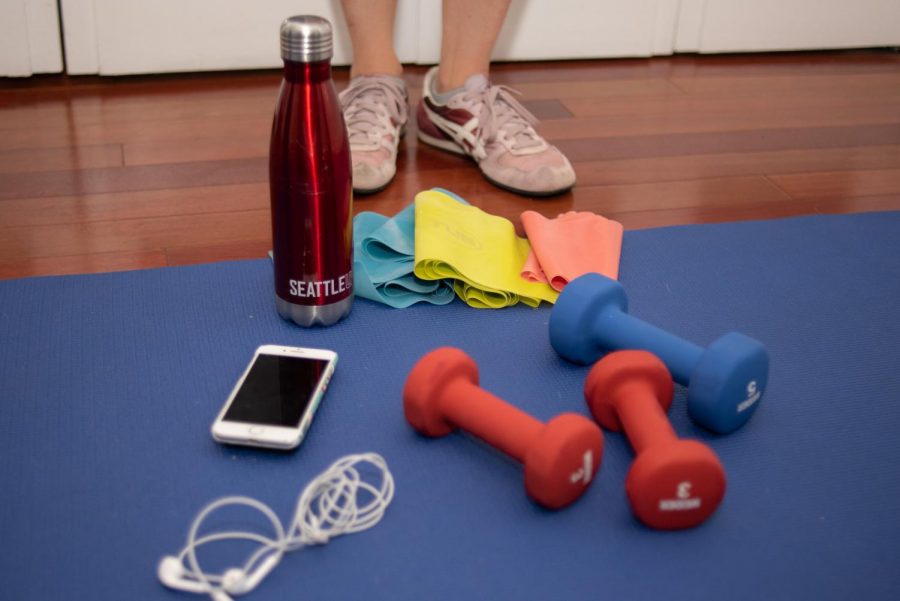Powering Through: Training When Your Competition Is a Computer
Trying to stay in shape while gyms are closed can be tough but home workouts and nearby outdoor activities can get you through this difficult time.
Marathons and Ironmans and Spartan Races, oh my! These are all on a list of sporting events that have been either canceled or postponed indefinitely due to the coronavirus pandemic. The events, which require months of training and grit, have been taken away from countless individuals all around the world.
Intense races are not the only ones that have been canceled—noncompetitive, sponsored fun runs are out of the picture, too. Fun runs matter for a lot of people, as there is not a lot of pressure to compete, and they can be a great way for someone to dip their toe into joining the running world.
Sammy Rodrigues, a 2018 Seattle University alum of the Sports and Exercise program is now a personal trainer at a practice in the city as well as at her own alma mater. She worked with a client who was training and looking forward to running a marathon.
“She was really bummed about it. She felt like she was putting in all of this work and was getting excited for it,” Rodriguez said. “She was someone who was mostly sedentary for some time, so not really doing much, and this was sort of her goal and what she was working towards.”
For some, exercise is a constant in a world of change. The effects of the pandemic, especially with stay-at-home orders, has taken a toll on many people’s daily routines and motivation levels.
“When everything got canceled, [Rodriguez’s client] fell back a little bit and didn’t really want to work out anymore,” Rodriguez said. “She lost a lot of motivation.”
However, the client slowly but surely got back into the groove of things, and to Rodriguez that is a huge accomplishment.
For people who are missing out on their events, there are many websites that are doing virtual competitions. Even Ironman, a renowned triathlon of running, biking and swimming, is turning training and competition digital. Instead of swimming—since people may not have access to a pool or water—they have changed it to just doubling up on running. Luckily, many people can go outside to both run and bike, making this opportunity to compete possible.
For people that are motivated by others and the adrenaline that only competition can provide, these virtual races may be difficult because it’s just not the same, Rodriguez noted. For example, being in the gym, you are training and around those people to push you even during the race.
“For some people that are really highly motivated and self-motivated in that way, I think that’s a pretty great thing to look forward to,” Rodriguez said of virtual competitions.
In Seattle, a few big races are coming up that are all virtual competitions. The first is on May 16, which is put on by University of Washington Bothell to raise money for UW Bothell’s student emergency fund. Seattle runners will not be able to partake in the way they initially planned, but the annual event will provide follow-along videos, a playlist and a link to map and share routes and times with other participants.
University of Recreation at Seattle U is offering virtual programming with personal trainers like Rodriguez to serve as a platform to talk about goals, motivation and one-on-one personal training sessions.
In the end, it doesn’t matter what kind of athlete you are, professional or not. Unprecedented times like the present are trying for everyone. What’s important is establishing a routine, keeping active and keeping the motivation levels high—you never know when the next virtual Ironman triathlon will take place.


